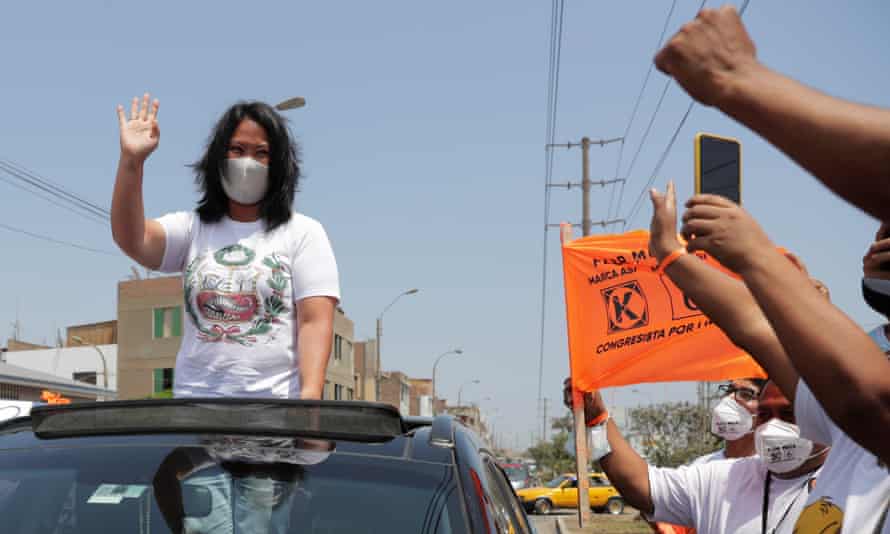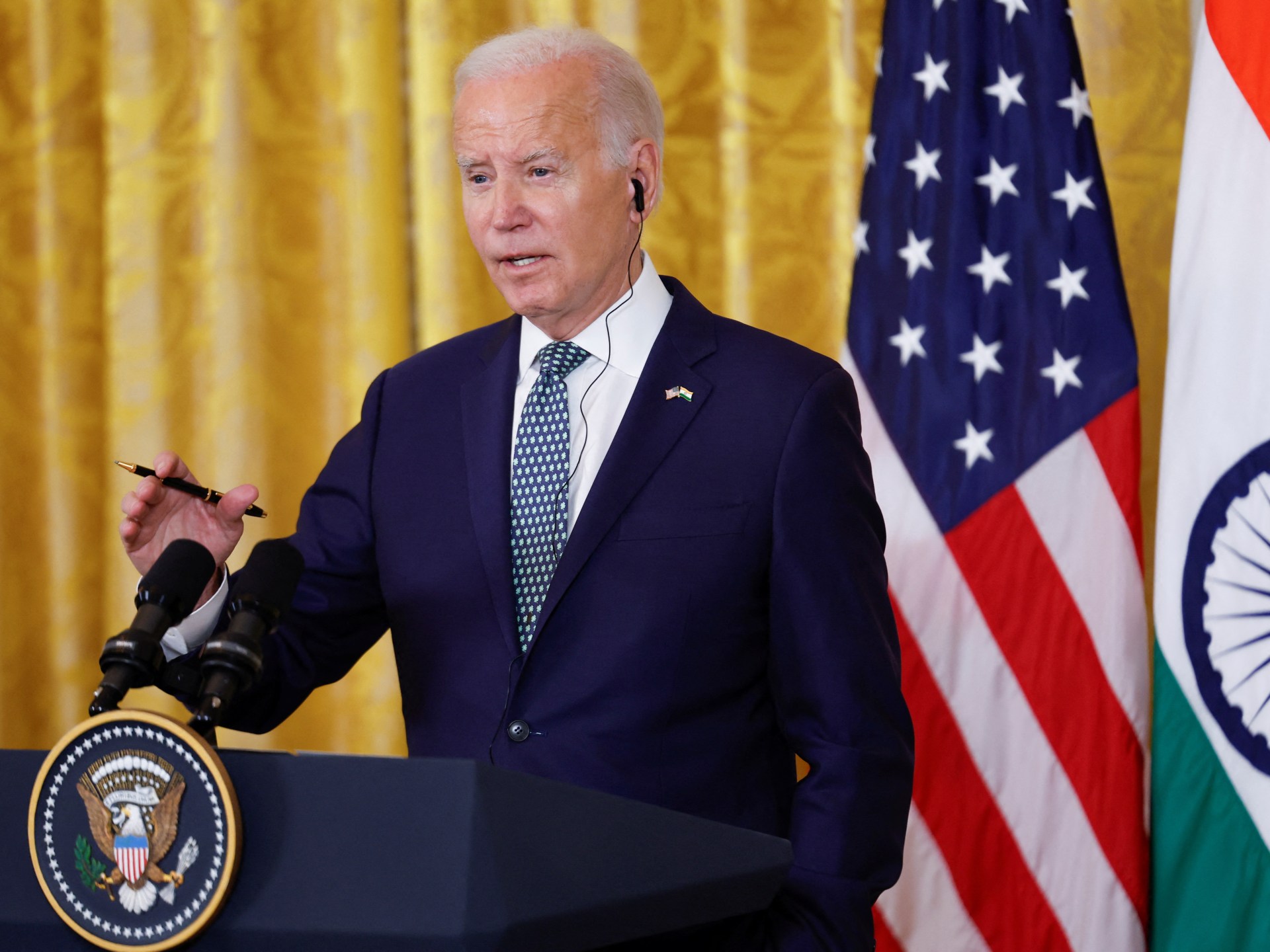‘People don’t want any of them’: Peru election sees unpredictable contest | Global development
An ultra-conservative millionaire who admits to scourging himself daily to repress sexual desire is just one of an assortment of low-polling candidates who all have a shot at becoming Peru’s next president.
Rafael López Aliaga is technically tied with five other contenders in an unpredictable contest to make a runoff vote in June, including a former goalkeeper, a Sorbonne-educated socialist and the daughter of the country’s jailed former leader Alberto Fujimori.
Sunday’s vote will take place during a second wave of Covid-19 which this week set a new record for daily deaths as the highly contagious Brazilian variant takes hold. Neighbouring Chile postponed a constituent assembly vote due for the same day after a surge in cases.
Peruvians joke they have been long accustomed to voting for the mal menor – or the lesser evil – but Hernán Chaparro, a political analyst, said “that concept has been overtaken”.
“There’s not even a least bad one – the people voting don’t want any of them!” he said.
About 28% of Peruvians would not choose any of the candidates, according to a poll by the Institute of Peruvian Studies. Other polls show the handling of the coronavirus pandemic by three different presidents – all amid a spate of political crises – has only compounded voter disenchantment.
“The pandemic has left a state with holes in it and enormously frustrated citizens, who reject politicians, and are not very interested in the elections,” said Fernando Tuesta, a political science professor at Lima’s Pontifical Catholic University.
“Add to that the highest number of candidates in living memory, who don’t spark passion, and show more weaknesses than strengths.”
López Aliaga, a financier and rail magnate, has drawn comparisons to far-right figures like the Brazilian leader Jair Bolsonaro (which he rejects) and Donald Trump.
A member of the ultra-conservative Catholic group Opus Dei, López Aliaga has opposed same-sex marriage and pledged to refuse abortion to underage rape victims, prompting concerns among human rights activists also alarmed by his use of conspiracy theories, disinformation and hate speech against opponents and journalists.
López Aliaga’s candidacy may have robbed some rightwing votes from Keiko Fujimori, but the daughter of Alberto Fujimori emerged with a slight lead over the five other candidates, according to two final polls published on Thursday.

The runner-up in the 2011 and 2016 presidential election, Fujimori has herself faced corruption allegations and spent months behind bars in pre-trial detention, although she is now under house arrest due to the pandemic. Her father governed Peru in the 1990s and was convicted of death squad killings and rampant corruption.
Vying for many of the same voters is Hernando De Soto, 79, a radical free-market economist who got a Covid-19 jab in the US while calling for Peru’s vaccination programme to be privatised. Older Peruvians remember him as a key adviser to strongman Fujimori when he dissolved congress and sent troops on to the streets in 1992.
At the other end of the political spectrum, Pedro Castillo, a teacher from the radical left, has surprised rivals by his rapid rise in the polls to a chance of winning a place in the runoff.
He competes with centre-left Yonhy Lescano, 62, who belongs to the tarnished Acción Popular party but vehemently opposed its role in leading congress’ ousting of former leader Martín Vizcarra in November which sparked huge pro-democracy protests.
For younger voters, the options are largely disheartening.
“It’s really complicated because many of the candidates have very bad reputations,” nursing student Amiel Eduardo, 20, told the Guardian.
Some young voters are looking to the leftist Verónika Mendoza, 40, as one of the more enlightened candidates in a conservative field – and one of very few to support legal abortion and same-sex marriage. But the second-time candidate’s socialist economic policies worry some voters and, although she has criticised Nicolás Maduro’s authoritarian government in Venezuela, some in her party continue to defend it.
Lastly, George Forsyth, 38, a former goalkeeper for the Alianza Lima football club, also served for two years as mayor of La Victoria, a crime-ridden district of the capital, before resigning to join the presidential race.
Voting is compulsory in Peru but turnout for this election is expected to be lower than previous ones due to the Covid-19 pandemic, especially among older voters.
“Peruvians are so tired of corruption that they basically don’t believe in anyone,” said Natalia Sobrevilla, a Peruvian historian teaching at the University of Kent. “Because everyone is polling so low and the differences [in votes] are so small, any change can really alter the result,” she said.
Peruvians’ trust in their elected representatives is at a record low after years of influence-peddling and a string of toppled presidents. The Odebrecht scandal – in which a Brazilian construction firm was found to have paid massive bribes across Latin America – led to the jailing of three former Peruvian presidents, and the death of another, Alan García, who fatally shot himself rather than be arrested in 2019.
“In the past, we’ve had a fragile democracy in Peru,” said Chaparro. “But now it’s in intensive care.”

